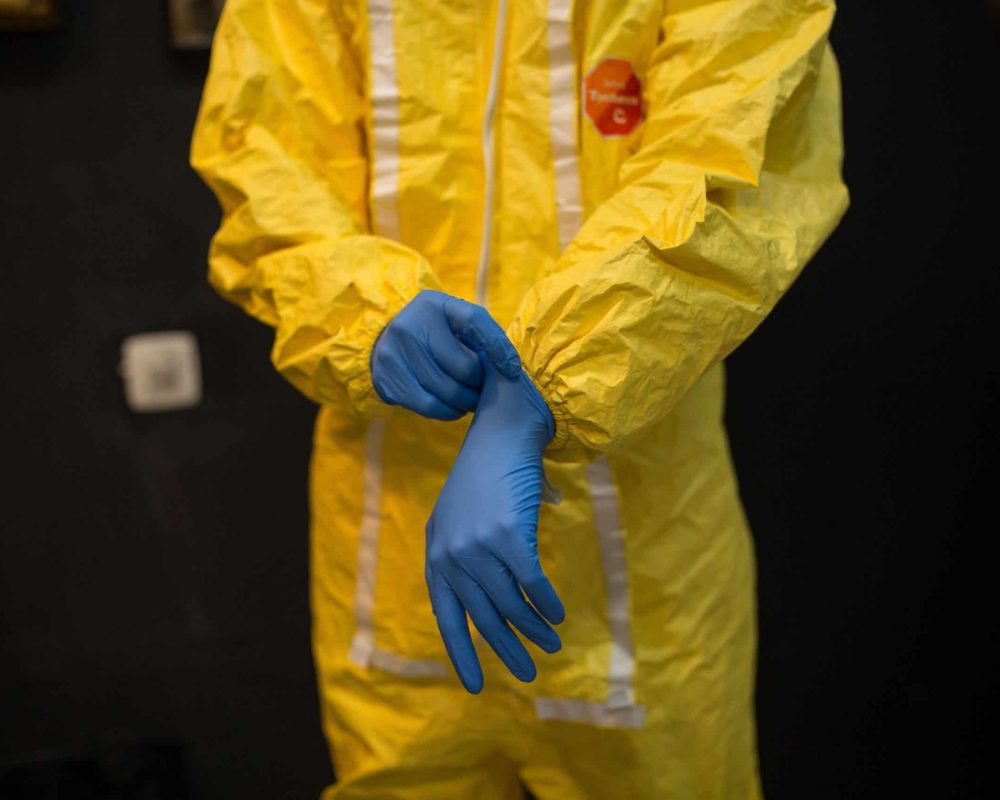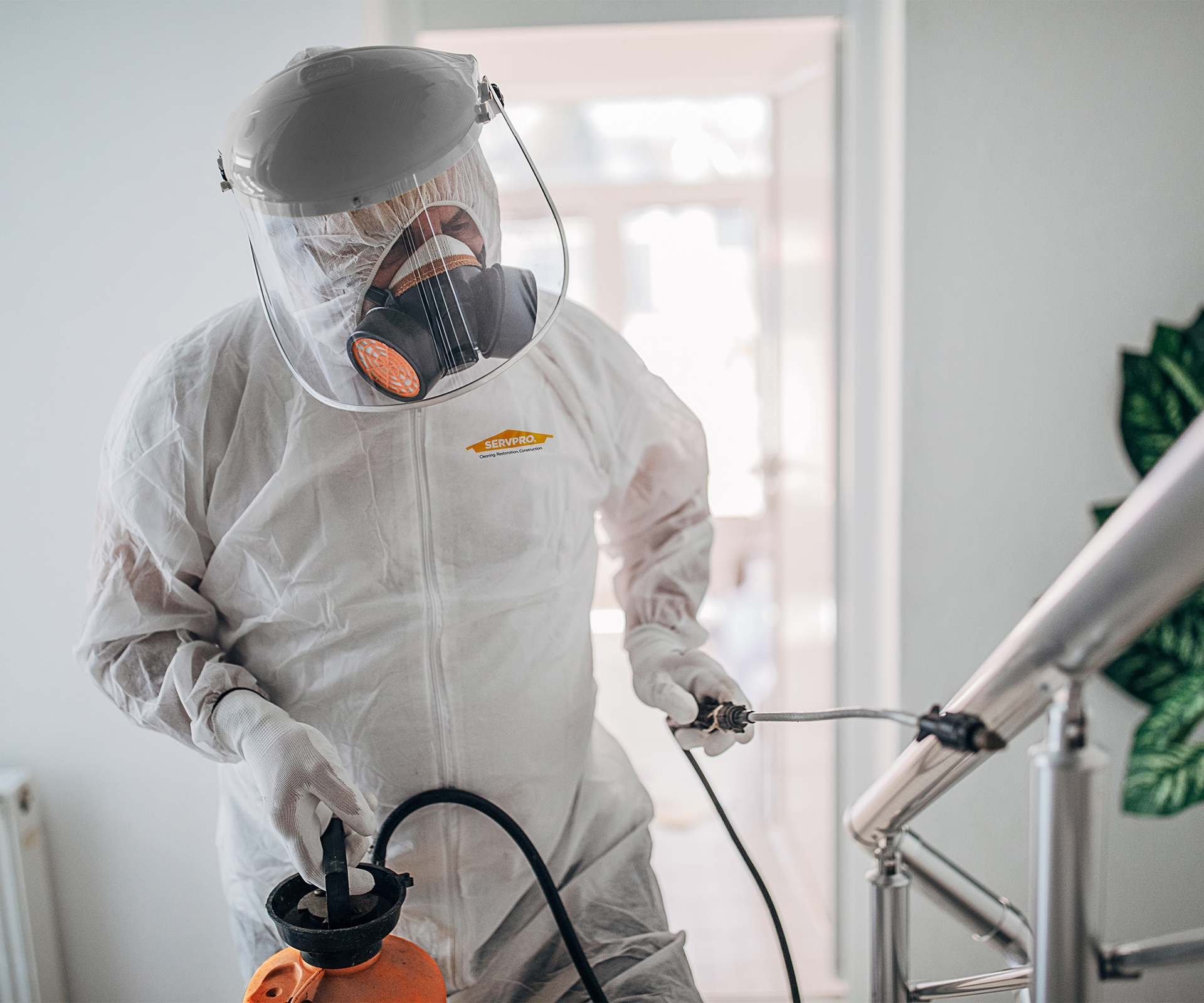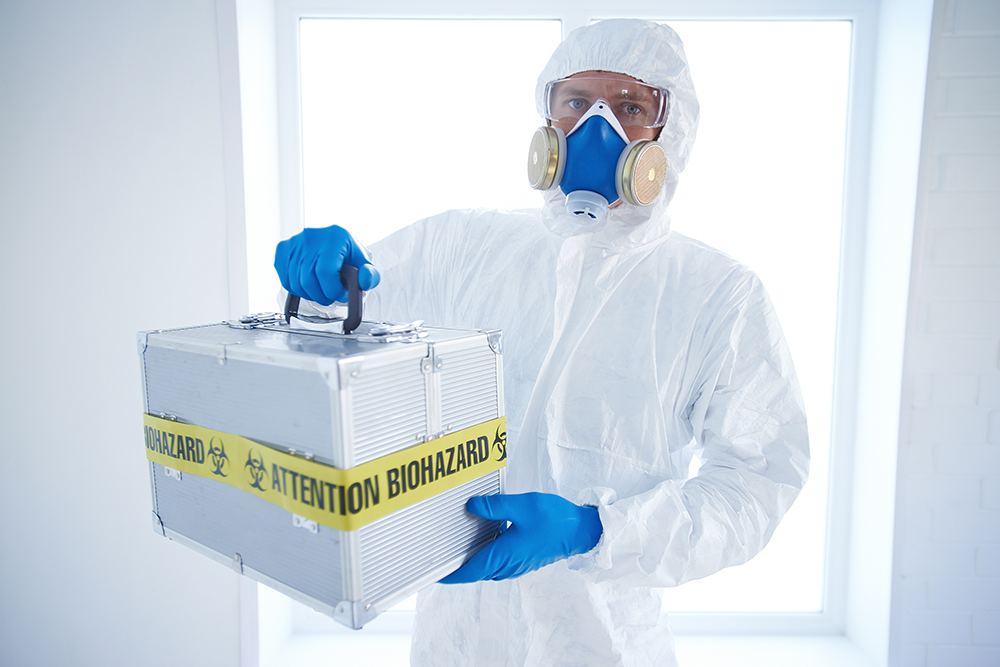Professional Biohazard Cleaning for Crime Scenes, Injury Incidents, and Polluted Rooms
In the realm of expert biohazard clean-up, careful interest to detail and adherence to safety and security protocols are critical. When confronted with the aftermath of a criminal offense scene, injury case, or any kind of polluted room, the significance of proper cleanup can not be downplayed. The threats and intricacies related to biohazards need customized expertise and experience to ensure effective removal. As we explore the intricacies of biohazard cleanup for these sensitive environments, a deeper understanding of the challenges and crucial procedures included will arise, clarifying the essential role of expert clean-up services in recovering safety and security and comfort.

Relevance of Biohazard Cleanup
Biohazard cleanup adhering to criminal offense scenes and injury incidents is important for guaranteeing the safety of individuals and the atmosphere. When these cases occur, they commonly leave a variety of biohazards such as blood, bodily liquids, and various other possibly infectious materials. These compounds can harbor hazardous microorganisms like viruses and bacteria, presenting major wellness risks if not effectively cleaned up and sterilized.
Specialist biohazard cleanup solutions are educated to handle these unsafe materials safely and efficiently. They have the needed devices, such as individual protective equipment and specialized cleaning agents, to thoroughly decontaminate the affected locations. By leaving the cleaning to experienced specialists, people can prevent direct exposure to unsafe virus and protect against the spread of transmittable illness.
Additionally, appropriate biohazard clean-up is vital for safeguarding the setting. Inappropriate disposal of biohazardous products can pollute soil, water sources, and air, presenting a threat to wild animals and the community. By following rigorous clean-up methods, experts can make sure that biohazards are safely removed and thrown away according to policies, minimizing the threat of environmental contamination.
Kinds Of Biohazards Encountered
Numerous dangerous materials generally encountered in criminal offense scenes and trauma occurrences present substantial wellness dangers otherwise dealt with properly. Blood and physical liquids are among one of the most typical biohazards located in these circumstances. These fluids can bring pathogens such as HIV, liver disease B and C, and various other harmful microorganisms. In addition, tissues, body organs, and body components can additionally posture severe health dangers due to potential contamination.
Another type of biohazard usually experienced is sharp things like needles, damaged glass, and various other products that can create injuries and send infections. Chemical threats are likewise an issue, as criminal activity scenes may have substances like tear gas, pepper spray, or drug manufacturing materials that call for specialized handling and disposal treatments to prevent further harm.
In addition, mold and microorganisms development can occur precede where decay or prolonged exposure to moisture has occurred. These microorganisms can release toxic substances and allergens into the air, presenting breathing threats to those revealed. On the whole, biohazard cleaning specialists should be well-equipped and trained to efficiently manage these various sorts of unsafe products to make sure the security of themselves and others.
Tools and Safety Gear
When attending to the important task of dealing with biohazards experienced in criminal offense scenes and trauma incidents, the application of correct tools and safety gear is extremely important to making certain the safety and security of people associated with the cleanup procedure. Individual protective devices (PPE) such as handwear covers, coveralls, masks, and goggles are important to prevent straight contact with potentially unsafe compounds. Respirators are critical when managing biohazards that may become air-borne, protecting workers from inhaling dangerous bits. Specialized cleaning tools like biohazard anti-bacterials, sharps, and bags containers are necessary for the risk-free collection and disposal of contaminated materials. In addition, heavy-duty tools such as industrial-grade cleansing agents, foggers, and ozone generators might be called for to completely disinfect the affected location. Making sure that all tools is correctly kept, on a regular basis examined, and made use of according to safety guidelines is essential in reducing the risk of direct exposure to biohazards throughout clean-up procedures.
Cleanup Process and Techniques
Reliable and detailed cleanup of biohazardous products from criminal offense scenes and trauma occurrences requires thorough attention to Extra resources information and adherence to strict safety protocols. The cleaning process commonly involves numerous essential actions.
Complying with the elimination of biohazardous products, the affected area undergoes a complete cleaning and sanitation process. This action involves using specialized cleaning representatives and tools to make certain that all traces of contamination are eradicated. After cleansing, the location goes through strenuous screening to validate that it is totally free and risk-free of any type of remaining biohazards.

Decontamination and Disposal Procedures
To guarantee comprehensive decontamination and correct disposal of biohazardous products, adhering to the careful clean-up procedure, specific treatments must be diligently followed with strict adherence to safety and security methods. Decontamination includes the removal or neutralization of contaminants to reduce the danger of direct exposure and spread of dangerous substances. This procedure usually includes cleaning, disinfecting, and sanitizing the affected location using specialized tools and EPA-approved chemicals.
Once decontamination is completed, appropriate disposal of biohazardous materials is vital to stop further contamination or injury. Biohazardous waste, such as blood-soaked products or physical liquids, must be carefully collected, packaged, and classified according to regulatory standards. ATP testing. These materials are then moved to qualified centers for disposal with suitable channels, ensuring conformity with neighborhood, state, and government regulations

Conclusion
In verdict, professional biohazard clean-up is important for making certain the safe and effective elimination of dangerous materials from crime scenes, injury occurrences, and infected areas. By using specific devices, protective gear, and adhering to appropriate clean-up procedures and strategies, biohazard clean-up teams can effectively sanitize and get rid of of biohazards, decreasing the danger of exposure and damage to people and the atmosphere.
As we delve right into the complexities of biohazard cleaning for these sensitive environments, a deeper understanding of the obstacles and important procedures included will certainly emerge, dropping light on the vital role of expert cleaning services in recovering blood clean up game safety and security and peace of mind.
Professional biohazard clean-up solutions are trained to manage these hazardous materials securely and effectively. By complying with rigorous cleanup procedures, experts can ensure that biohazards are safely gotten rid of and disposed of in accordance with policies, decreasing the risk of ecological contamination.
In general, biohazard clean-up specialists must be fully equipped and experienced to successfully take care of these different types of harmful products to make certain the safety of themselves and others.
When addressing the crucial job of taking care of biohazards encountered in criminal offense scenes and trauma events, the usage of appropriate devices and safety equipment is extremely important to making sure the safety of people entailed in the clean-up process.